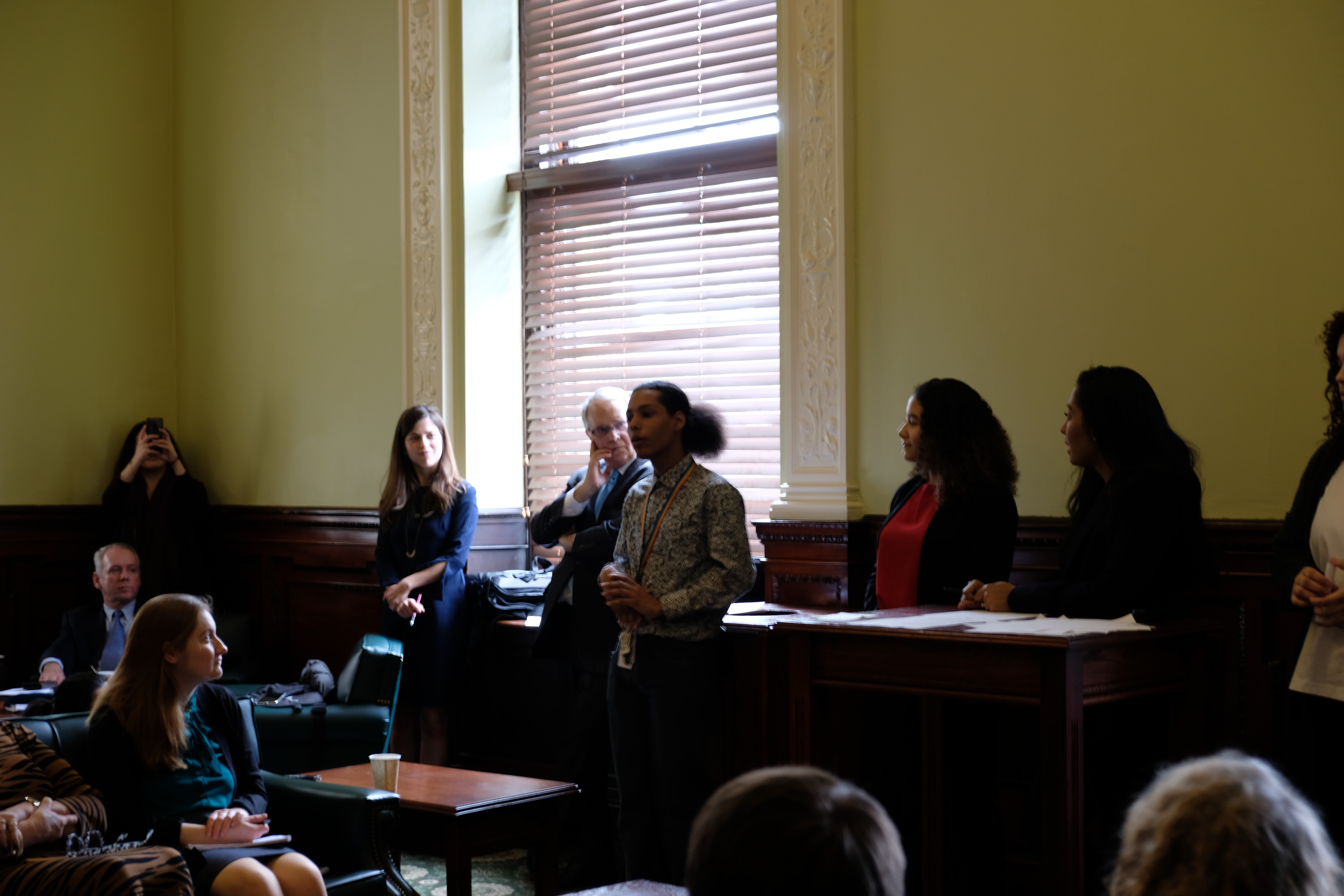Massachusetts has made a name for itself as a key player in the innovation economy. But for the first time in the state’s history, the population of college educated residents is predicted to decline, putting long-term economic growth and opportunity for the state — and its residents — in question.
A coalition of think tanks, public institutions, elected leaders and business partners have set out to disrupt this trend with a simple, effective tool: early college.
 At a State House briefing held in early March, MassINC, Massachusetts Business Alliance for Education, Massachusetts Association of Community College, The Rennie Center for Education Research and Policy, and the Latino Education Institute touted the success of emerging college programs, and called on legislators to attach an extra $2.25 million for Concurrent and Dual Enrollment Programs and $500,000 for Early College Programs in the fiscal year 2021 budget.
At a State House briefing held in early March, MassINC, Massachusetts Business Alliance for Education, Massachusetts Association of Community College, The Rennie Center for Education Research and Policy, and the Latino Education Institute touted the success of emerging college programs, and called on legislators to attach an extra $2.25 million for Concurrent and Dual Enrollment Programs and $500,000 for Early College Programs in the fiscal year 2021 budget.
How Early College Works
Students who enter the program take carefully sequenced, real college classes with strong career orientations during the high school day. Because the high school and institutions of higher education work hand-in-hand, students who might not see themselves as college-goers or who might not yet be college-ready, receive enhanced academic and guidance support to help them prepare emotionally, socially and academically. Early college is offered at no cost to the student or their parents. 
“It was really helpful to have the early college experience since my parents cannot tell me about college, especially in the United States. What they knew about colleges [came] from the Dominican Republic where things are very different,” Anna Ureña-Luna, a first-year at Salem State, said at the event. “The early college program helped prepare me for success in college while also saving me time and money.”
The Benefits of Early College
Early College is serving those with the highest need: low-income students make up 45% of early college enrollment vs. 26% of high school students. And students enrolled in early college programs are going directly on to college after high school graduation, at double the rate of their non-early college peers.
On average, early college students are performing well academically, earning higher average GPAs than their fully matriculated college peers. Rigorous, random assignment national studies show that early college doubles post-secondary attainment; leading states in the early college space are realizing a 15:1 return on investment. No other post-secondary completion initiative comes close to mimicking the success of early college.
Early College in Massachusetts
So far, 2,300 students across Massachusetts have enrolled in early college programing through 34 high schools and 16 higher education institutions, with 22 new applications making their way through a rigorous designation process.
What’s Next for Early College?
Advocates believe legislators must support an extra $2.25 million for Concurrent and Dual Enrollment Programs and $500,000 for Early College Programs in the fiscal year 2021 budget. In a letter to local school officials, Elementary and Secondary Education Commissioner Jeff Riley wrote that he wanted to accelerate the adoption of the programs.
Learn more about the exciting possibilities of early college with MassINC’s new report, Investing in Early College.
